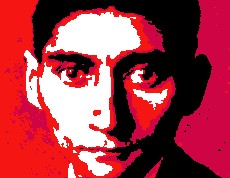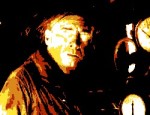Biography: life and films

Bruno Dumont was born in Bailleul, in the Nord department of northern France, on 14th March 1958. He began making films as early as the mid-1980s, mostly promotional commissions. His film making career began properly with his first feature La Vie de Jésus (1997), a bleak social realist drama that received the Prix Jean-Vigo in 1997 and a Special Mention Caméra d'or at the Cannes Film Festival the same year. Dumont's follow-up feature L'Humanité (1999) was no less grim and won him further acclaim. The film also attracted some controversy when it took three of the top awards at the 1999 Festival de Cannes - as well as the Jury Grand Prize it also won the Best Actor and Best Actress awards for its two lead performers, Emmanuel Schotté and Séverine Caneele.
The director's third feature, Twentynine Palms (2003), a macabre road-movie filmed (atypically) in California, was generally less well-received, although it revealed for the first time Dumont's unpredictable streak and a characteristic nonchalance over alienating his admirers. Dumont won back the critics with his next film Flandres (2006), a sparse anti-war film which was widely seen as a suitably bitter response to the West's misguided military interventions in Iraq and Afghanistan. The film, arguably his best to date, won the Jury Grand Prize at Cannes in 2006. After this digression into the atrocities of war, Dumont then took us on a strange excursion into mysticism with his next two films, Hadewijch (2009) and Hors Satan (2011).
For Camille Claudel 1915 (2013), inspired by an episode in the life of the famous sculptor, Dumont took the unprecedented step of casting a big name actor, Juliette Binoche, in the lead role. He claimed the part justified the choice and it allowed Binoche to turn in one of her finest screen performances. Even greater surprises were in store when Dumont undertook to direct directed P'tit Quinquin, a four-part mini-series for the Franco-German television channel Arte in 2013. Reworking the subject matter of his earlier L'Humanité as a black comedy, the director showed a surprising flair for comedy, and this gave him the inspiration for his first cinematic comedy Ma Loute (2016). The familiar northern France setting notwithstanding, this eighth Dumont feature is unlike anything that has gone before, a deliriously unhinged melange of slapstick, surrealism and dark humour with a cast that mixes big name actors (Juliette Binoche, Fabrice Luchini, Valeria Bruni Tedeschi) and non-professionals. Whereas some independent filmmakers are happy to be pigeon-holed, Bruno Dumont appears to be the exact opposite - a chameleon who keeps shedding his skin, giving us no clue as to what he intends doing next.
© James Travers 2017
The above content is owned by frenchfilms.org and must not be copied.
Filmography
Click here to view complete list of films...Kafka's tortuous trial of love

The silent era of French cinema

